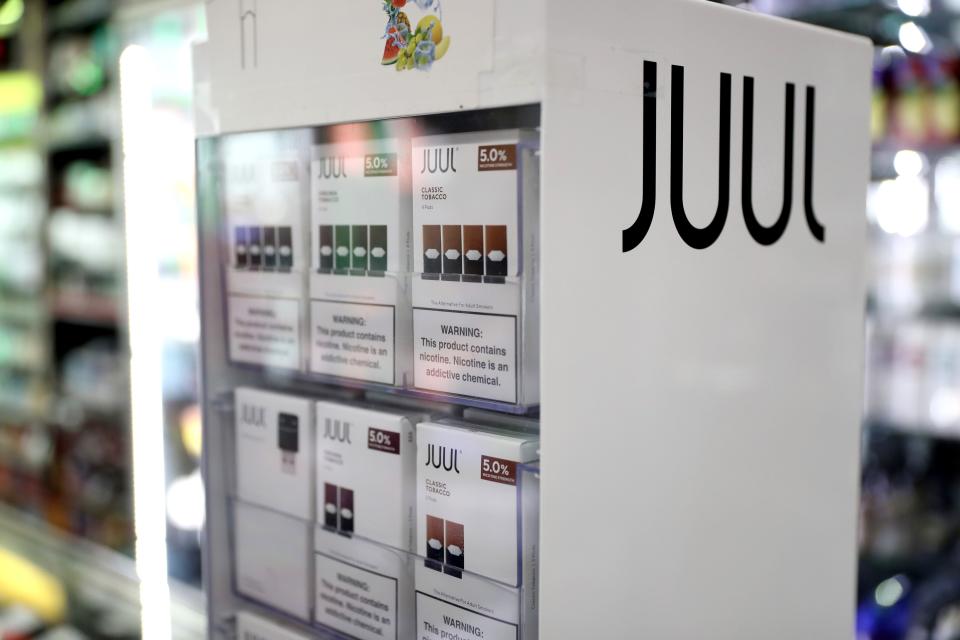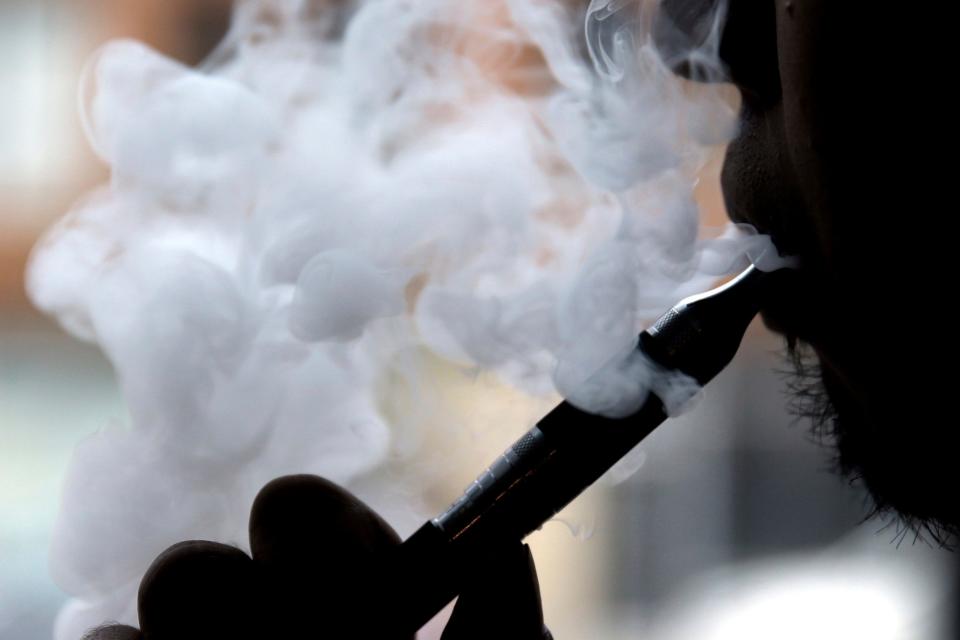Juul to pay $438 million to Ohio, other states and promises marketing changes
Electronic cigarette company Juul Labs agreed to pay $438.5 million and stop marketing its vaping products to children to settle a two-year investigation by Ohio and 32 other states.
In 2020, states began investigating Juul's promotions and claims about the safety and benefits of its technology as a smoking alternative.
Smoking in Ohio:Lung association says Ohio is failing to curb tobacco use
The settlement resolves one of the biggest legal threats facing the company, which still faces nine separate lawsuits from other states. Additionally, Juul faces hundreds of personal suits brought on behalf of teenagers and others who say they became addicted to the company’s vaping products.

The state investigation found that Juul marketed its e-cigarettes to underage teens with launch parties, product giveaways and ads and social media posts using youthful models, according to a statement.
Vaping and marketing: Vape companies borrow from Big Tobacco ad playbook
“No nicotine marketing to kids! It was wrong when it was Joe Camel, and it’s wrong when it’s JUUL's “Miint” and “Fruut” flavors and their influencer-led targeting,” said Ohio Attorney Dave Yost in a written statement. “This settlement puts an end to Juul’s trawling for new addicts among our children.”

Juul agreed to refrain from marketing to youths, using anyone younger than 35 in marketing materials and making misleading representations about nicotine content.
The settlement will be paid out over six to 10 years.
A recent study by Ohio State University researcher showed kids who use e-cigarettes are more likely to take up smoking or use smokeless tobacco. Teen boys who vaped were almost three times as likely to start smoking as other teen boys with similar risk profiles and more than two times as likely to try smokeless tobacco, the OSU study found.
Information from the Associated Press is included in this report.
This article originally appeared on The Columbus Dispatch: Juul agrees to pay $438 million to Ohio, other states

